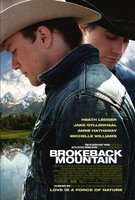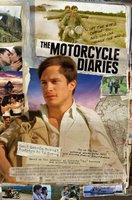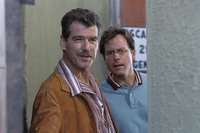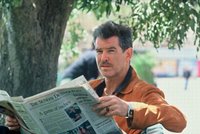Patrick Doyle might seem an odd choice to compose the score to
Carlito’s Way (1993), but his music is integral to the film’s success. Doyle scored Kenneth Branagh’s engrossing adaptation of Shakespeare’s
Henry V, and his majestic music for Brian DePalma’s crime story
Carlito’s Way reflects the film’s deeper resonance as a Shakespearean tragedy. The soaring, poetic elegy that underscores the sequence that begins and ends the film plays as a sad, haunting requiem both for the title character, Carlito (Al Pacino), and for a code of honour, a way of life that is dying.

Written by David Koepp based on two novels by former Judge Edwin Torres,
Carlito’s Way skillfully weaves the story of drug kingpin Carlito Brigante through several weeks after his early release from a 30-year prison sentence courtesy of hotshot lawyer Dave Kleinfeld (an almost unrecognizable Shawn Penn). Brigante has had a change of heart while in prison (“You don’t get reformed; you just run out of wind,” he explains) and his overriding goal is to stay low long enough to earn $75,000 by running a nightclub for Kleinfeld then buy his way into a car rental business run by a friend in the Bahamas. Fate, of course, has other plans.
Carlito tries to hook up with his former girlfriend Gail (Penelope Ann Miller), with whom he cut off all ties during his prison sentence (“Best to just cut it clean”). Gail represents an exquisite possibility, someone who can pull him out of his world and into the one he wants to escape to. Doyle’s hauntingly romantic music layers sharp poignance to a scene of Carlito watching Gail, a dancer, in her dance studio while he huddles in the rain on an adjacent rooftop. Gail’s hope of making it big as a dance performer on the stage is tarnished and almost lost, though, and Carlito’s dream opens possibility for her too.

Ironically, it is Carlito’s basic decency and loyalty to a code of honour that threatens their future. Carlito feels that he owes Kleinfeld for his early release. Kleinfeld gradually turns out to be someone who is not remotely worth such loyalty, but Carlito cannot let go of his perceived debt. Corrupt and coked-up, Kleinfeld runs afoul of the mob and enlists Carlito’s help, and just as Carlito is close to his dream, the web-like strands of fate snare him.
Carlito’s Way is tense, involving, and moving. The story is nicely structured, in spite of a prologue that appears to give away Carlito’s ultimate fate. How much more tense the film would have been had the filmmakers eliminated the prologue, but it is a testament to how well made the movie is that it survives such a blunder and even delivers a slam-bang ending.
And what a finale: a 20-minute chase sequence set mostly on the New York subway, with an almost continuous music score. Pursued by mob hitmen, Carlito races to meet Gail and take a train out of the city and into his dream. The camera follows Carlito up stairs, along platforms, through train carriages, dogged by the forces of his former life. The ending of
Carlito’s Way is one of the great examples of pure cinema—little dialogue and all visual movement, editing, music, and performance. It’s a tour-de-force, especially remarkable considering how many Hollywood films fumble their ending, and a testament to the quality of all that has come before in the movie. As beautifully shot as it is, the climax wouldn’t mean a damn thing unless we were invested in the characters. The script and performances have all led up to this moment, and it explodes on screen in a tempestuous, galvanic flight away from the Shakespearean fates biting at Carlito’s heels.
This may be the best direction that Brian DePalma has completed in a major Hollywood film. The attention-getting camera moves that mar earlier films are controlled here, allowing the performance and story to play their pivotal roles. But make no mistake, DePalma’s directing is stylish and assured, and he creates supreme tension in several scenes, such as the excruciating build-up to a deadly shoot-out in a bar.
With a classical resonance that most thrillers lack,
Carlito’s Way has unfortunately often been overshadowed by the cult status of DePalma and Pacino’s other collaboration,
Scarface, but this is by far the better film. A personal favourite, I would even venture to say that
Carlito’s Way is one of the best crime thrillers ever made.
Carlito’s Way is now available as an “Ultimate Edition”, with several short documentaries on the making of the film. The picture quality in anamorphic 2.35:1 widescreen is exemplary.






